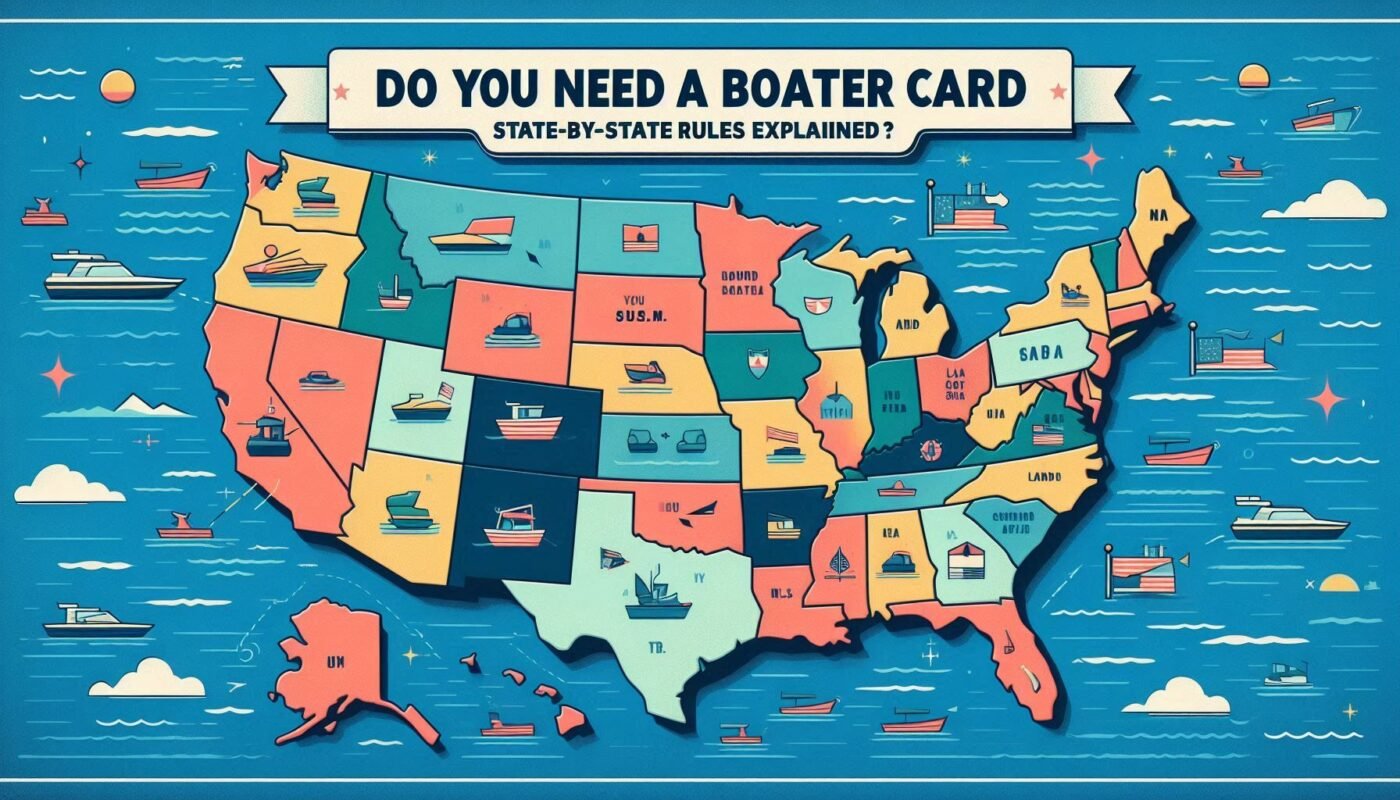Do You Need a Boater Card? State-by-State Rules Explained
If you’re dreaming of peaceful days on the water or adrenaline-pumping afternoons on a jet ski, there’s one thing you might need before setting sail—a boater card. But wait…what exactly is a boater card? And do you even need one in your state?
Let’s break it all down together in simple terms, so you know exactly what’s required before you head out on the water.
What Is a Boater Card, Anyway?
A boater card, sometimes called a boating license or boater education card, is proof that you’ve completed a state-approved boating safety course. Think of it like your driver’s license but for boats—it shows you understand the basics of safe boating.
But here’s the catch: not every state requires you to have one. And even among those that do, the rules can vary based on age, type of boat, or how long you plan to be in the state.
So how are you supposed to know what’s required where? Don’t worry—we’ve got you covered.
Why Boater Education Matters
Before we dive into what each state requires, let’s pause for a second and think about why these rules exist.
Boating can be fun, soothing, and exciting—but just like driving a car, it also comes with risks. The water doesn’t have street signs or traffic lights. It’s important to know how to navigate, what the right-of-way rules are, and how to handle emergencies.
Think of a boater card as a small investment in your safety—and in the safety of everyone else out there on the water.
Which States Require a Boater Card?
Here’s where it gets a little tricky. The United States doesn’t have one universal boating license. Every state sets its own rules. Some require a card for everyone, some just for younger boaters, and others don’t require one at all.
Here’s a helpful breakdown:
States That Require Boater Cards for All Operators
In some states, all boaters—regardless of age—must have a boater card. These states take boating safety very seriously and want everyone out there to be properly trained.
- Alabama
- Connecticut
- New Mexico
- Oregon
- West Virginia
In these states, if you’re planning to operate any type of motorized boat or personal watercraft (like a jet ski), you’ll need to pass a boating safety course and carry proof of it while on the water.
States with Age-Based Requirements
Many states only require a boater card for certain age groups—usually younger or first-time boaters.
For instance:
- Florida requires a boater card for anyone born on or after January 1, 1988.
- California imposes age-based phased-in requirements, with full implementation due by 2025.
- Texas mandates boater education for anyone born on or after September 1, 1993.
These rules may also depend on the type of vessel—personal watercraft often have stricter regulations.
States That Don’t Currently Require a Boater Card
Believe it or not, there are still a few places where no formal boater education is required (though it’s highly encouraged).
- Alaska
- South Dakota
- Wyoming
Even in these states, many smart boaters still choose to take a safety course. After all, even experienced captains can benefit from a refresher.
Temporary and Out-of-State Boaters
So, what if you’re visiting another state on vacation? Most states will honor an out-of-state boater card as long as it meets National Association of State Boating Law Administrators (NASBLA) standards.
Planning to rent a boat? Some states offer temporary permits or rental safety certificates that allow you to legally operate a boat for a short time.
Just be sure to check ahead of time—nobody wants a ticket (or worse) ruining their weekend getaway.
What’s in a Boating Safety Course?
Completing a boating safety course isn’t as intimidating as it sounds. These courses are designed to be accessible and clear—even if you’ve never set foot on a boat before.
Topics usually include:
- Boat handling and operation
- Navigation rules
- Emergency procedures
- State boating laws
- Environmental awareness
Courses can often be taken online, so you can learn at your own pace from the comfort of home. After you pass the final exam, your boater card will either be mailed to you or available to print.
How to Check Your State’s Requirements
With rules changing from state to state—and sometimes by age or boat type—the best way to stay legal and safe is to check your own state’s boating laws.
You can visit your state’s boating authority website or use resources like BoatUS or NASBLA to look up details. Some people even prefer to call customer service for peace of mind.
Helpful Tip: Keep Your Boater Card Handy
It’s not enough to just pass the course—you need to have proof of completing it any time you’re operating a boat. Keep a physical or digital copy of your boater card with you while on the water.
It’s kind of like your driver’s license—better safe than sorry!
So, Do You Need a Boater Card?
In short: Maybe! It all depends on your state, your age, and the type of boat you’re driving.
If you’re unsure, take a few minutes to look up the rules in your state (or wherever you plan to boat). And even if you’re not required to take a course, doing so is always a smart move.
After all, knowledge is power—and safety. Knowing how to properly operate your vessel could mean the difference between a fun day on the water and an emergency situation.
Final Thoughts: Stay Smart, Stay Safe
Boating is one of the best ways to enjoy nature, relax with family, or find a little adventure. But with that freedom comes responsibility.
By completing a boating safety course and keeping your boater card on hand, you’re doing your part to make the water safer for everyone.
And who knows? You might even learn a few tips that make your next outing more enjoyable.
So go ahead—plan that trip, prep your vessel, and make sure you’ve got everything you need for smooth sailing. Just don’t forget your boater card!
Ready to Get Certified?
Check out Drive a Boat USA to find approved courses, by state, that will help you get on the water safely and legally.
Now, get out there and enjoy the ride—the water’s waiting!







